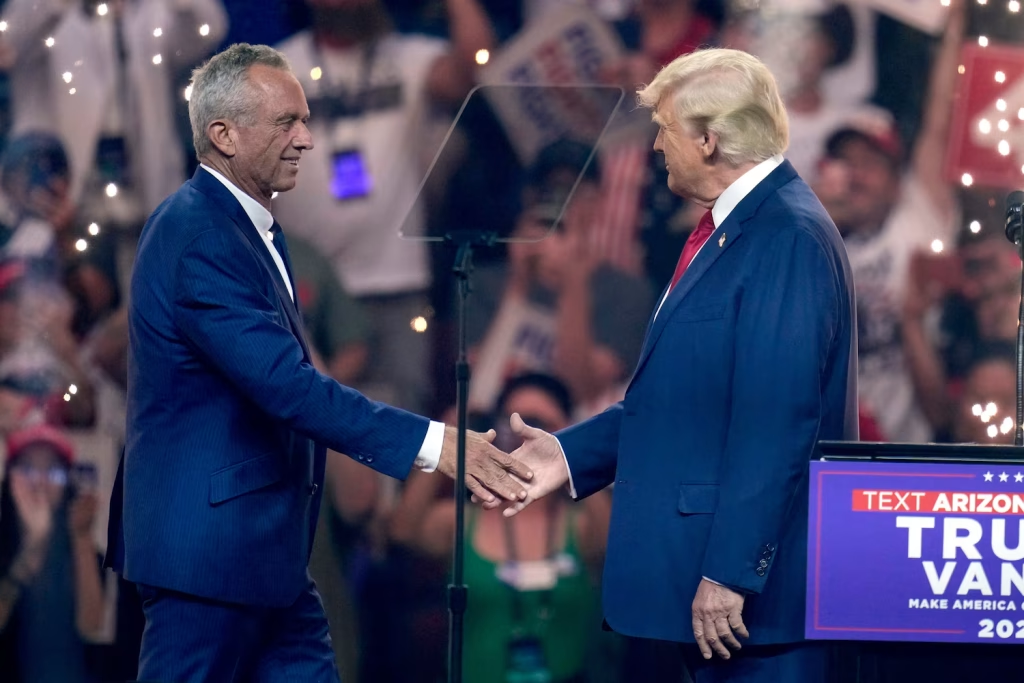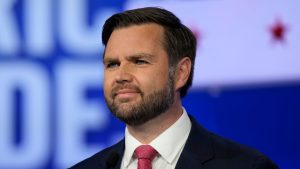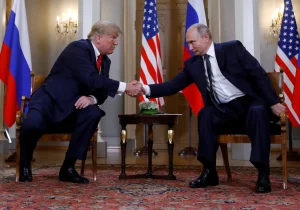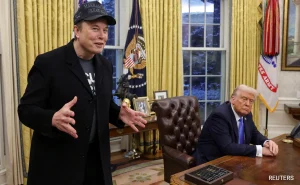CDC Overrules Trump and RFK Jr. with Key Vaccine Move at WHO Conference.
In a move that appears to defy President Donald Trump's executive orders, the Centers for Disease Control and Prevention (CDC) is actively participating in a key World Health Organization (WHO) conference on flu vaccines this week.
This participation comes despite Trump's earlier executive orders which banned U.S. agencies, including the CDC, from engaging with the WHO as the U.S. began its formal withdrawal from the global health organization.
The WHO Conference and the Trump Administration's Stance
The ongoing meeting, which started Monday in London, focuses on critical flu vaccine recommendations for the upcoming Northern Hemisphere season.
The WHO’s twice-annual consultations bring together experts who analyze global flu data and offer vital recommendations for the development of vaccines used by health agencies and pharmaceutical companies worldwide.
Given the crucial role of the CDC and the FDA in vaccine development and regulation, their participation is seen as integral to ensuring effective flu vaccines are created for the U.S. market.
Despite the Trump administration’s clear directive to halt communications with WHO, a spokesperson for the CDC confirmed the agency's involvement, noting that members of the organization would be "actively participating virtually" in the conference.
Health experts have raised concerns that the U.S. might fall behind in developing accurate vaccine formulations if its agencies were excluded from these consultations, especially as global flu strains continue to evolve.
Why Did the CDC Go Against Trump’s Ban?
The Trump administration issued an executive order last month to initiate the U.S. withdrawal from the WHO, citing dissatisfaction with the organization's handling of the COVID-19 pandemic and its close ties with China.
The order effectively banned U.S. agencies, including the CDC, from direct communication with the WHO. However, the CDC’s participation in this week's vaccine consultation suggests a calculated move, possibly seeking an exemption or interpreting the rule differently.
For the CDC, not attending this essential WHO meeting could have led to delays or inaccuracies in flu vaccine development, creating potentially dire consequences for public health.
Health experts feared that the absence of key U.S. health agencies at the meeting would result in less effective flu vaccines for the U.S. market, putting vulnerable populations at risk.

Susan Coller Monarez is an American health scientist serving as the Principal Deputy Director at the Centers for Disease Control and Prevention (CDC).
A Global Health Crisis in the Making?
The WHO meeting also includes discussions on emerging flu strains such as H5N1 bird flu, which is spreading across the U.S., and other viruses that present pandemic risks.
These discussions are pivotal in formulating responses to future outbreaks. Given that the U.S. is one of the largest manufacturers and stockpilers of flu vaccines, its participation in these global discussions is essential for both domestic and international health security.
In the absence of U.S. participation, there were growing concerns about how the FDA and CDC would guide pharmaceutical companies in targeting the right flu strains for the next season's vaccines. With millions of lives at stake, these decisions could have far-reaching effects on public health worldwide.
The Ripple Effect of Trump’s Executive Orders
The CDC’s participation in the WHO meeting is just one aspect of the Trump administration's broader impact on global health programs.
Along with the vaccine communication ban, Trump also froze funding for the President's Emergency Plan for AIDS Relief (PEPFAR), a critical initiative credited with saving millions of lives globally.
This freeze has caused alarm among international health organizations, as the cessation of funding could halt HIV treatment for more than 20 million people, leading to a resurgence of the disease in some regions.
What’s Next for U.S. Health Agencies and Global Health?
As the U.S. continues its withdrawal from the WHO, the role of U.S. health agencies in global health discussions remains uncertain.
While the CDC’s participation in this key meeting signals an ongoing commitment to global health, the future of U.S.-WHO collaborations remains in question.
The Trump administration’s executive orders have created significant challenges, not just in vaccine development but also in other critical health programs like PEPFAR, potentially undermining decades of progress in global health.
As the situation unfolds, many are questioning the long-term impact of these policies on global public health and the ability of U.S. agencies to continue working effectively with international health organizations.





















